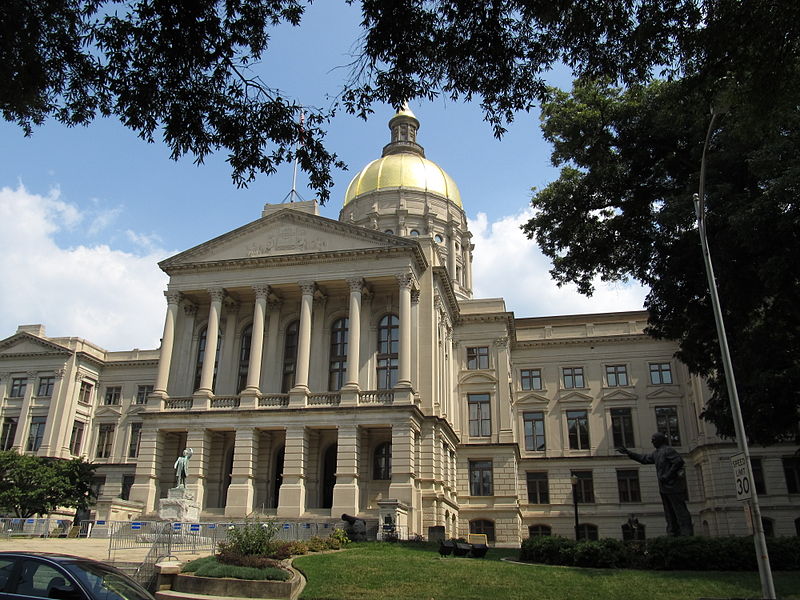By Jacob Stubbs, GCO Legislative Intern
While I was a government major as an undergraduate, I had never really encountered anything close to actual politics. This is not necessarily a bad thing, for I was quite interested in the philosophical systems that underlie the beliefs that shape political action. With this focus, I did not take the general classes over political parties, the legislative branch, etc.
Following my time as an undergraduate, I served as a Fellow at the John Jay Institute where I read more political theory and continued to discuss the philosophy that underlies political science. When GCO approved my internship, I was quite nervous about actually encountering practical applications of political science. My professional mentors were all in agreement that this internship would be a great experience for me to finally be able to come down from the clouds and actually apply what I had been learning in a practical way.
When I started work at the Capitol, I realized that, despite my reading and research for the previous few weeks, my impression of how the political system worked was rather off base. For example, I was not aware of the amount of lobbyists that I would encounter. Reflecting on this with Eric Cochling, GCO’s Vice President of Policy Advancement, I was told that there were about 1000 lobbyists currently registered in the state of Georgia. Certainly, I would not have initially guessed this.
Though I did not expect to hear politicians talking about Plato’s Just City in Speech and its anti-utopian warnings, I was still a little surprised at how practical the discussions actually were. It makes sense that any discussion of Plato or Aristotle or virtue ethics would be out of place when you’re trying to determine how much money the state should allocate toward education expenditures. That being said, there have been certain “theoretical” discussions in some of the committee meetings I’ve attended thus far, such as issues of federalism, private property, and the extent of free speech. Furthermore, even deeper theoretical issues such as personal autonomy and privacy, have begun to make an appearance. Sorting through these issues on a more practical level has been refreshingly instructive in furthering my political education.
In terms of the legislative process, I have been quite amazed at how democratic everything actually is. Average citizens can come to committee hearings and register to give testimony as to how the bill at hand would affect them and their life. In one recent committee hearing, I heard concerns voiced from people whose case led to the bill’s introduction, as well as parents and various professional organizations who would be affected by the provisions in the bill. While I am sure that there is a certain forum for this in Washington, the fact that my family or neighbors can step into one of these committees to give their opinion on the legislation truly shows that state politics influences our everyday lives more than we may think.
The range of the General Assembly’s influence is not a bad thing, in my opinion. Recently, I asked a lobbyist if he had ever considered working in Washington. He expressed his love of state politics and assured me that the state politicians are intensely concerned with bettering the lives and situations of their constituents, not winning some political argument or jockeying for a better committee appointment. This lobbyist’s impressions helped reassure me that I was not naïve in my assessment of the political climate under the Gold Dome. While there may be some intense disagreements about the best ways to go about healthcare and other policy concerns, these disagreements reflect a care for the common man and a love for the particular. Certainly, the national political scene can quickly leave one jaded; however, my experience under the Gold Dome thus far has reinvigorated my interest in politics and my faith in the political process.
______________________________
Jacob Stubbs is a Georgia native who graduated from Berry College in May 2013 with a double major in Government and Philosophy. He has recently completed a fellowship at the John Jay Institute in Philadelphia, PA, and is currently serving as the legislative intern at Georgia Center for Opportunity. Following his time at GCO, Jacob is hoping to seek further graduate education in either political science or philosophy.
